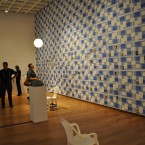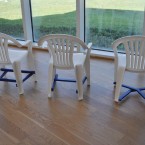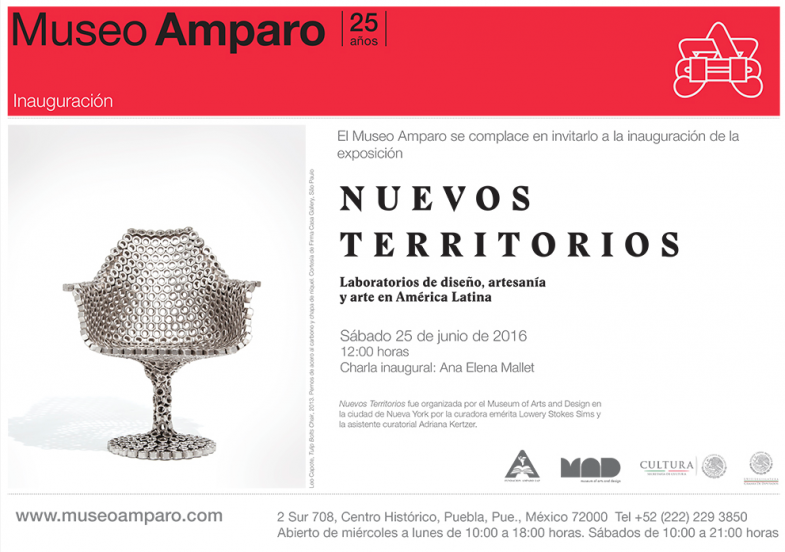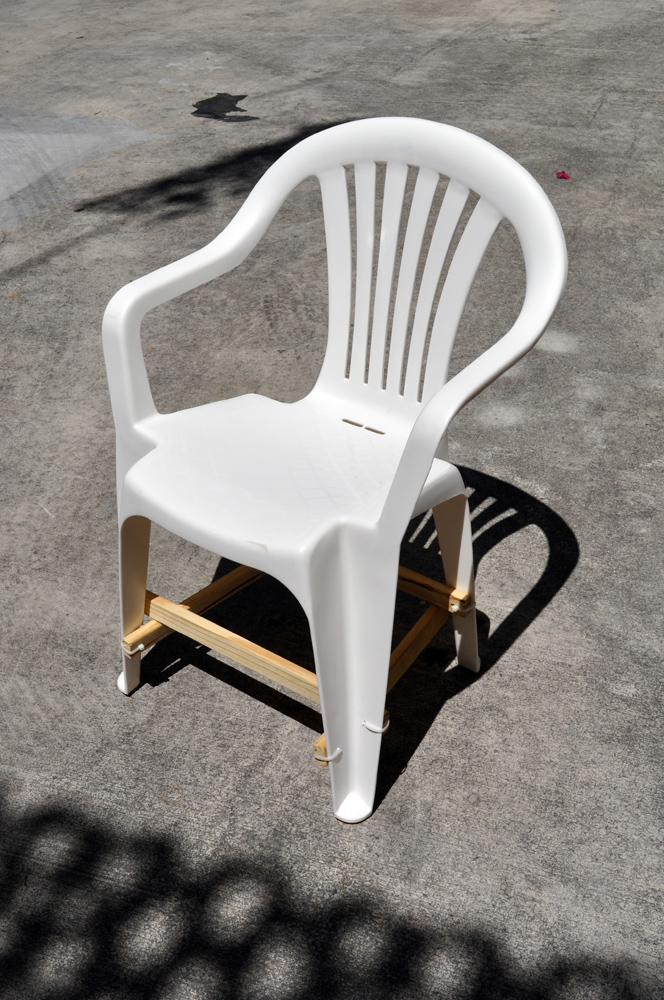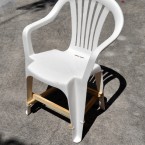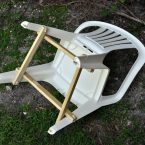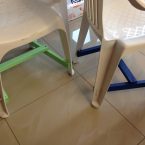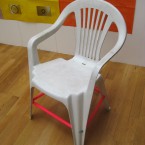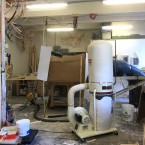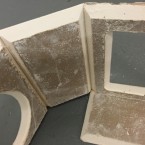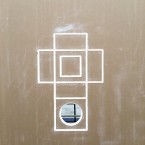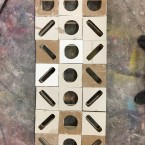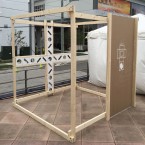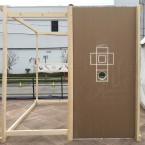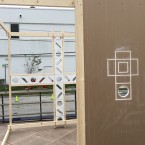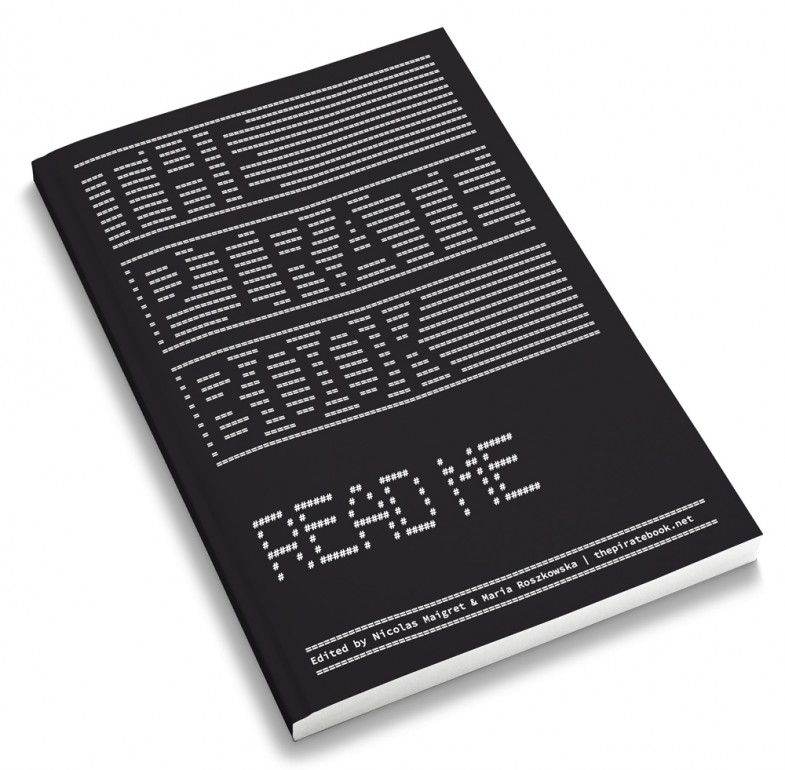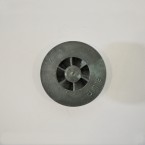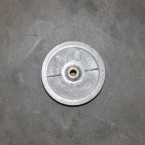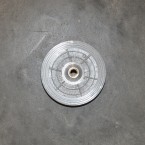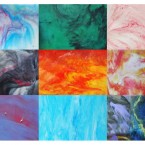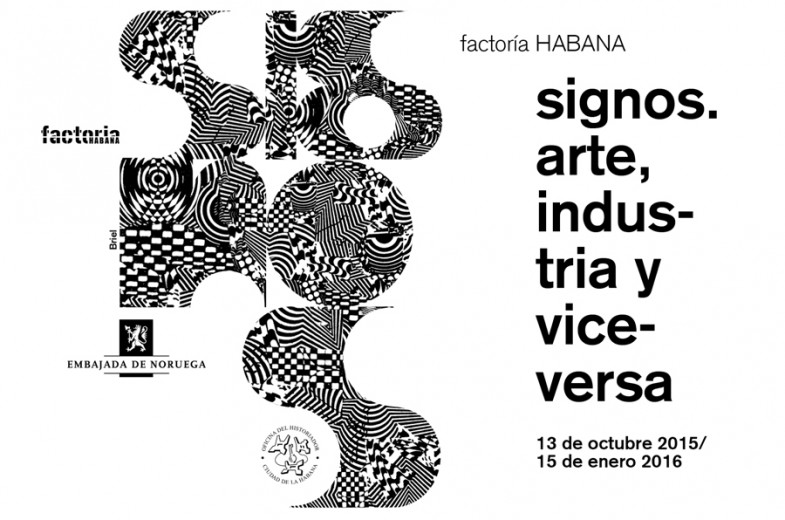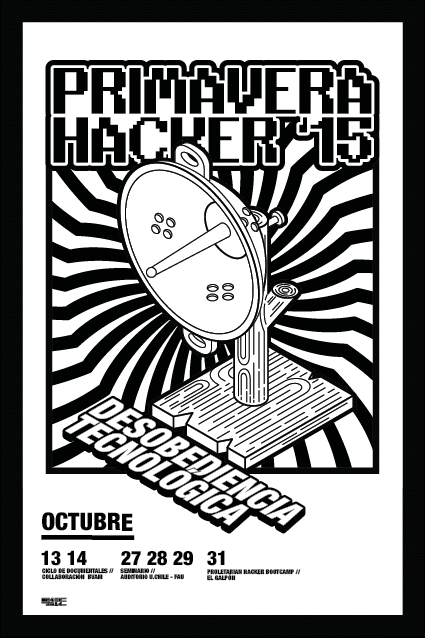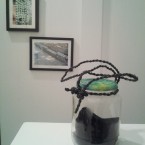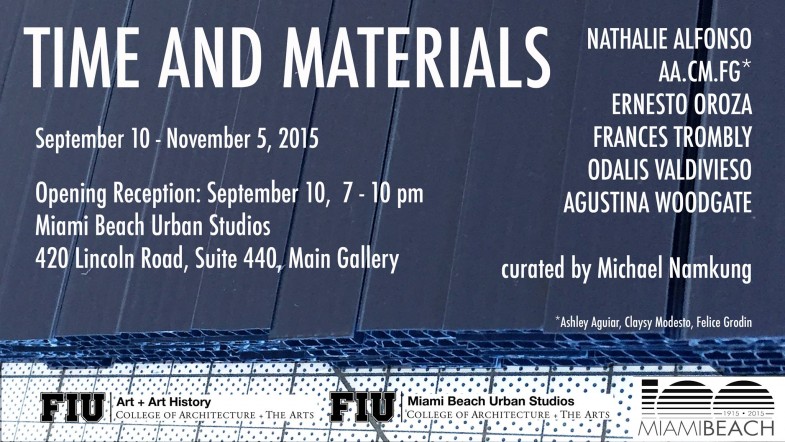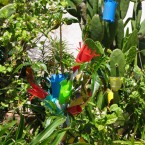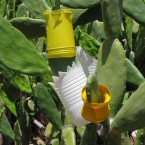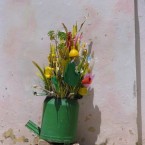Ernesto Oroza / Pernod Ricard Fellow 2016
SEPTEMBER – NOVEMBER 2016
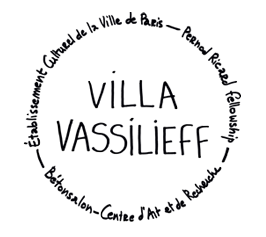
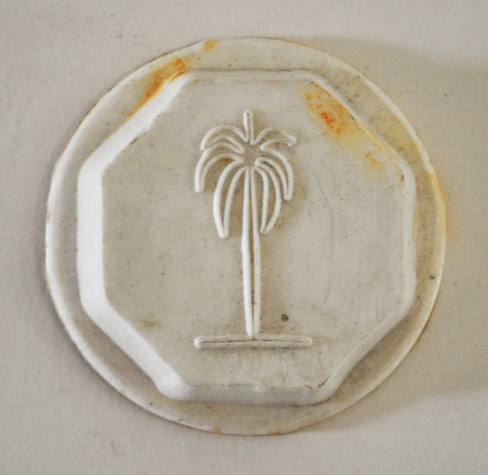
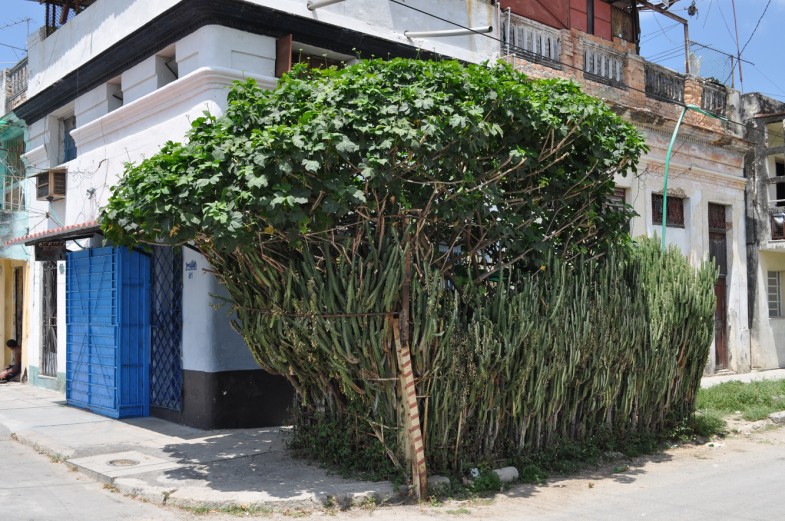
Ernesto Oroza, Untitled (Habitat cell made out with euphorbia trigona shrubs and an aluminum door.) From architecture of necessity, 2012
Curated by William Cordova
Nov. 5, 2016 – Jan. 8, 2017
Opening Reception: Friday, Nov. 4, 2016
“we should want … [our] relationship to space to evoke architecture as it is informed by the humanities, not architecture simply as a technical art.” -LaVerne Wells-Bowie (Art On My Mind: Visual Politics: bell hooks)
The works selected by curator William Cordova represent four generations of South Florida artists whose practice is informed and rooted in the geography, community and multi-cultural diversity of the region. These are artists who have endured and evolved as South Florida has changed, and yet still transcend the boundaries of expectation.
The exhibition offers a glimpse into the prism of South Florida art through sculpture, painting, drawing, audio and film. The works are derived from many different parts of the region and utilize a variety of concepts and scale. Exhibiting artists include the late Purvis Young, the first real home-grown talent whose prolific and complex work gained international critical acclaim well before the 2000s; Karen Rifas, whose expansive site-specific ephemeral installations have been a trademark and influence on the ever-evolving local scene since the 1970s; Robert Thiele, the first Florida artist to be included in the prestigious Whitney Biennial (1975); Juana Valdes, whose work has been included in various biennials, including the Havana and SITE Santa Fe biennials, and yet locally goes unnoticed by major museums; and Onajide Shabaka, visual artist, anthropologist, botanist and writer, a cultural practitioner whose artistic depth and contributions remain unmatched. These are only a few of the many practitioners whose works will be highlighted in this survey of a southern Florida collective.
“those who ain’t got it can’t show it, those who got it can’t hide it” — Zora Neale Hurston
more info here: http://artandculturecenter.org/transphysics-istwa-landscapes-paisajes
- corrected monobloc chair – silla corregida, 2016
Ernesto Oroza, Tabloid/Wallpaper of Architecture of Necessity essay with photos from the thematic series Architecture of Necessity, Technological Disobedience and Marakka 2000 (detail), 2016, site specific installation, 17 x 41 feet.
Video:
Ernesto Oroza and Magdiel Aspillaga, Marakka 2012, 2012, single channel video (running time 34:49 minutes).
www.desobedienciatecnologica.net
This new research blog Technologicaldisobedience.net was commissioned by the artist and curator Nicolas Maigret for the virtual exhibition «Futurs non-conformes», presented from April until October 2016 on Jeu de Paume’s virtual space.
Project produced with the support of Jeu de Paume.
2016 ORLANDO MUSEUM OF ART FLORIDA PRIZE IN CONTEMPORARY ART
May 13 – August 14, 2016
The Florida Prize in Contemporary Art is an initiative of the Orlando Museum of Art that brings a new level of recognition to the State’s most progressive artists. Now in its third year, the 2016 exhibition will present ten outstanding artists, with one selected to receive the prize. These artists work in a range of media and artistic practices, often in new and unexpected ways. The challenging nature of their work will offer Museum visitors insight into the complex and exciting world of contemporary art in Florida.
This year’s artists are: Anthea Behm, Gainesville; Adler Guerrier, Miami; María Martínez-Cañas, Miami; Noelle Mason, Tampa; Ernesto Oroza, Aventura; Matt Roberts, Deland; Dawn Roe, Winter Park; Kyle Trowbridge, Coral Gables; Michael Vasquez, Miami; and Sergio Vega, Gainesville.
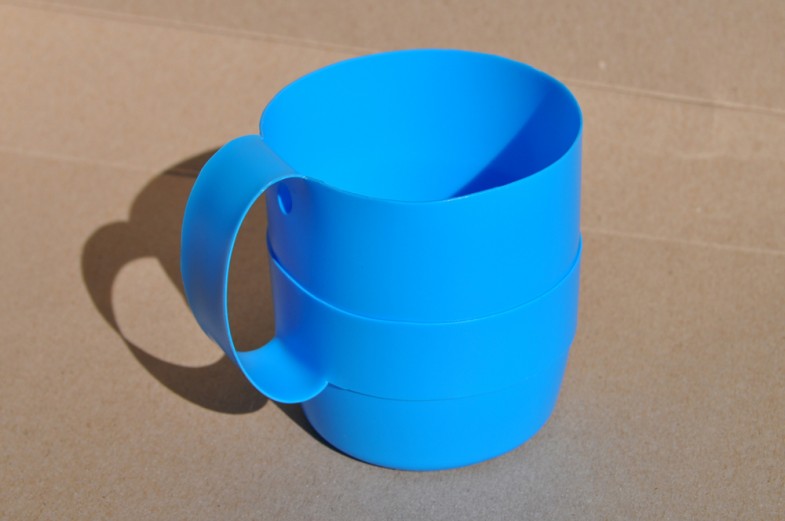
FUTURS NON-CONFORMES
An exhibition curated by Nicolas Maigret, artist, curator et teacher at the Parsons School Paris
April 7th – October 2016
FUTURS NON-CONFORMES ventures the hypothesis that a form of ‘propaganda of innovation’ exists and that this propaganda has become, in turn, the focal point for a series of artistic counterstrategies which are critical, experimental and speculative in nature.
Implied Interaction: The Role of Participant, Artist and Viewer in selected works from the CINTAS Foundation Fellows Collection
February 24 – July 17, 2016A selection of nine works from the CINTAS Foundation Fellows Collection, Implied Interaction explores the artists’ imprint on and/or interaction with a specific work. Whether implied or explicit, each artwork exemplifies how the viewer forms a lasting conversation to complete each piece. Artists represented in this exhibition are past winners of the prestigious CINTAS Foundation Fellowship in Visual Arts that honors artists of Cuban descent, including Felipe Dulzaides, Coco Fusco, Guerra de la Paz, Jillian Mayer, Ana Mendieta, Gean Moreno, Ernesto Oroza and Ernesto de la Vega Pujol. The exhibition is a brief encounter with each artist’s esteemed practice and provides a glimpse into the depth of the prestigious CINTAS Foundation Fellows in Visual Arts.
Since 2011, the CINTAS Foundation has entrusted MDC’s Museum of Art + Design to serve as stewards of the CINTAS Fellows Collection, comprised of nearly 300 pieces by artists of Cuban descent living outside Cuba who have received prestigious CINTAS Fellowships, awarded since 1963.
Location Information:
Freedom Tower
600 Biscayne Blvd.
Miami, FL 33132Freedom Tower – Second Floor

Brutal Beauty
Violence and Contemporary Design
7 February – 1 May 2016, Marta Herford (Lippold Gallery, 1st floor)
Opening: Sunday, 7 February, at 11:30 a.m.
Whether in political conflicts or conflicts in everyday life – the subject of violence is ever-present. Against the background of international terrorism and the current streams of refugees from war zones, the subject is more topical than ever.
But how do designers deal with violence? What responsibility do they bear, and which possibilities for action do they open up in this highly dynamic process? Marta Herford introduces a whole new generation of designers whose designs and strategies are making violence visible in order to take a stance against the often devastating worldwide developments now and in the future. They are no longer concerned solely with the design of the perfect product, but rather with shaping social processes. As an engine for participation or inclusion, design can thus be understood as the opposite to submission (Vilém Flusser).
The exhibition also points up the dark side of design. Although design is meant to serve humans in a wide variety of ways, if we look more closely, violence and design are like Siamese twins. Because, at the latest in the production stage, a material is – brutally – forced into a particular shape. In addition to this, a lot of product developments have military origins. The ugly face of design is ultimately exposed when things are no longer usable and have to be disposed of.
The Belgian design expert Max Borka (Berlin) serves as an advisor to the Marta team for “Brutal Beauty”, the scenography for the exhibition is designed by Matthias Megyeri (Stuttgart/London).
Participating designers, artists and projecs
Barnaby Barford, Jeremy Bentham, James Bridle, Anthony Burrill/ Ewoudt Boonstra, Jordi Canudas, Paolo Chiasera, Curro Claret, Ray und Charles Eames, Ron From, Dave Hakkens, Elham Seyed Javad, Chris Jordan, Cyrus Kabiru, Ronen Kadushin, Jan Pieter Kaptein, An-Sofie Kesteleyn, Landfillharmonic, Eva Lechner, Ross Lovegrove, Matthias Megyeri, Yael Mer/ Shay Alkalay, Guy Mishaly, Azusa Murakami/ Alexander Groves, George Nelson, Ernesto Oroza, Marijn van der Poll, Michael Sailstorfer, Skateistan, Jair Straschnow/ Bert Kramer/ Gitte Nygaard, Ezri Tarazi, Carolien Vlieger/ Hein van Dam, Tobias Vollmer, Dominic Wilcox u.a.
THE PIRATE BOOK
This work offers a broad view on media piracy as well as a variety of comparative perspectives on recent issues and historical facts regarding piracy. It contains a compilation of texts on grass-roots situations whose stories describe strategies developed to share, distribute and experience cultural content outside of the confines of local economies, politics or laws. These stories recount the experiences of individuals from India, Cuba, Brazil, Mexico, Mali and China. The book is structured in four parts and begins with a collection of stories on piracy dating back to the invention of the printing press and expanding to broader issues (historical and modern anti-piracy technologies, geographically-specific issues, as well as the rules of the Warez scene, its charters, structure and visual culture…).
____________________________________________________________________
WEBSITE thepiratebook.net
CONTACT US ping@thepiratecinema.com
EDITED BY Nicolas Maigret & Maria Roszkowska
CONTRIBUTORS
Jota Izquierdo, Christopher Kirkley,
Marie Lechner, Pedro Mizukami, Ernesto Oroza,
Clément Renaud, Ishita Tiwary, Ernesto Van der Sar,
Michaël Zumstein
DESIGN Maria Roszkowska
PROOFREADING Philip Jan Nagel
TRANSLATION Themba Bhebhe
PUBLISHED BY Aksioma – Institute for Contemporary Art
PRODUCED BY Aksioma and Pavillon Vendôme, Clichy
IN PARTNERSHIP WITH
Abandon Normal Devices, Kunsthal Aarhus & Neural Magazine / Supported by the Creative Europe Programme of the European Union, the Ministry of Culture of the Republic of Slovenia, the Municipality of Ljubljana and the Municipality of Clichy, France. The Pirate Book was released in the framework of Masters & Servers
The GIDEST seminar is held bi-weekly on Fridays from 12-1:30pm in the GIDEST Lab at 411, 63 Fifth Avenue.
All sessions are devoted to discussion of pre-circulated papers that can be downloaded one week in advance by clicking on the presentation title below.
http://www.gidest.org/events/2015/11/13/ernesto-oroza
Signos. Arte, industria y viceversa
Concebida como una instalación que ocupa toda la galería, esta exposición reúne planos, maquetas, muebles, fotografías, esculturas, publicaciones, dibujos, textiles, vídeos y otros materiales, para llamar la atención sobre zonas históricas y contemporáneas del diseño, en un sentido amplio. Se destacan realizaciones que los comisarios consideran dignas de una revisita en el terreno de las relaciones y los intercambios entre arte, diseño e industria. El conjunto desplegado incluirá también elementos peculiares del ambiente arquitectónico y urbanístico de La Habana, ciudad en donde han cuajado, de manera privilegiada, las experiencias aquí reunidas. Sin énfasis didáctico ni ambición panorámica, el proyecto sugiere conexiones, genealogías, sinergias y experiencias creativas, cual líneas que se cruzan en un entorno sociocultural muy dinámico, caracterizado por la fluidez, las apropiaciones y las improvisaciones.
Curaduría: Antonio Eligio (Tonel) y Concha Fontenla
Carlos José Alfonzo, Juan Carlos Alom, Félix Beltrán, Alberto J. Carol, María Victoria Caignet, Gonzalo Córdoba y EMPROVA, Miguel Díaz, Felipe Dulzaides, Leandro Feal, Mario Gallardo, Mario García Joya (Mayito), Carmelo González, Roberto Gottardi, Arturo Infante y Reinier Quer, Nicolás Landrián, Roberto Matta, Cirenaica Moreira, Ernesto Oroza, Amelia Peláez, Manuel Piña, René Portocarrero, Idelfonso Ramos, Leyden Rodríguez-Casanova, Mariano Rodríguez, Humberto Solás y Héctor Veitía, Lesbia Vent Dumois.
Y los proyectos Ediciones en colores, TELARTE, Arte en la Fábrica, Arte en la Carretera y Arte en el Muro.
Inauguración 13 de octubre a las 8:00pm
O´Reilly 308 e/ Habana y Aguiar. La Habana Vieja
- Desobediencia tecnológica. Factograma. 60 piezas de refacción. 2015
- Desobediencia tecnológica. Factograma. 60 piezas de refacción. 2015
- Desobediencia tecnológica. Factograma. 60 piezas de refacción. 2015
- Desobediencia tecnológica. Factograma, 2015 (detalle)
- Desobediencia tecnológica. Factograma, 2015 (detalle)
- Desobediencia tecnológica. Factograma, 2015 (detalle)
- Desobediencia tecnológica. Factograma, 2015 (detalle)
- Desobediencia tecnológica. Factograma, 2015 (detalle)
- Desobediencia tecnológica. Factograma, 2015 (detalle)
- Signos. Arte, industria y viceversa. Vista general.
- Canape provisional, 2000
- Canape provisional, 2000
- Cabaret punk, stage a la deriva. 1997-presente. 9 fotogramas. Banco: Cirenaica Moreira
- Cabaret punk, stage a la deriva. 1997-presente. 9 fotogramas. Banco: Cirenaica Moreira.
- Cabaret punk, stage a la deriva. 1997-presente. 9 fotogramas. Banco: Miguel Díaz
- Cabaret punk, stage a la deriva. 1997-presente. 9 fotogramas.
- Cabaret punk, stage a la deriva. 1997-presente. 9 fotogramas.
- Cabaret punk, stage a la deriva. 1997-presente. 9 fotogramas.
- Cabaret punk, stage a la deriva. 1997-presente. 9 fotogramas.
- Cabaret punk, stage a la deriva. 1997-presente. 9 fotogramas.
- Cabaret punk, stage a la deriva. 1997-presente. 9 fotogramas.
- Cabaret punk, stage a la deriva. 1997-presente. 9 fotogramas.
- Cabaret punk, stage a la deriva. 1997-presente. 9 fotogramas.
- Invitación
Signos. Arte, industria y viceversa
Concebida como una instalación que ocupa toda la galería, esta exposición reúne planos, maquetas, muebles, fotografías, esculturas, publicaciones, dibujos, textiles, vídeos y otros materiales, para llamar la atención sobre zonas históricas y contemporáneas del diseño, en un sentido amplio. Se destacan realizaciones que los comisarios consideran dignas de una revisita en el terreno de las relaciones y los intercambios entre arte, diseño e industria. El conjunto desplegado incluirá también elementos peculiares del ambiente arquitectónico y urbanístico de La Habana, ciudad en donde han cuajado, de manera privilegiada, las experiencias aquí reunidas. Sin énfasis didáctico ni ambición panorámica, el proyecto sugiere conexiones, genealogías, sinergias y experiencias creativas, cual líneas que se cruzan en un entorno sociocultural muy dinámico, caracterizado por la fluidez, las apropiaciones y las improvisaciones.
Curaduría: Antonio Eligio (Tonel) y Concha Fontenla
Carlos José Alfonzo, Juan Carlos Alom, Félix Beltrán, Alberto J. Carol, María Victoria Caignet, Gonzalo Córdoba y EMPROVA, Miguel Díaz, Felipe Dulzaides, Leandro Feal, Mario Gallardo, Mario García Joya (Mayito), Carmelo González, Roberto Gottardi, Arturo Infante y Reinier Quer, Nicolás Landrián, Roberto Matta, Cirenaica Moreira, Ernesto Oroza, Amelia Peláez, Manuel Piña, René Portocarrero, Idelfonso Ramos, Leyden Rodríguez, Mariano Rodríguez, Humberto Solás y Héctor Veitía, Lesbia Vent Dumois.
Y los proyectos Ediciones en colores, TELARTE, Arte en la Fábrica, Arte en la Carretera y Arte en el Muro.
Inauguración 13 de octubre a las 8:00pm
O´Reilly 308 e/ Habana y Aguiar. La Habana Vieja
PRIMAVERA HACKER 2015
DESOBEDIENCIA TECNOLOGICA
http://primaverahacker.cl
Primavera Hacker es una instancia de diálogo en torno a las relaciones entre tecnología, política y prácticas creativas que busca desarrollar una mirada disidente de la lógica económica dominante. Concebimos la tecnología no como un objeto neutro sino como uno que está atravesado en su diseño, desarrollo y uso por decisiones políticas, lo que evidencia un potencial que es urgente orientar hacia la transformación de las relaciones sociales y de producción.
En un contexto local donde la ilusión de progreso y éxito económico ligada a la oferta tecnológica nos mantiene diariamente dóciles e inmovilizados en una cadena de endeudamiento y obsolescencia, creemos necesaria la toma de consciencia y la acción frente a la precariedad de la que somos parte.
En nuestra versión 2015 tendremos como invitado al diseñador cubano Ernesto Oroza, quien, bajo el rótulo de “desobediencia tecnológica”, analiza cómo en el contexto de precariedad técnica y material en Cuba a partir de los años 90, se establecen relaciones activas y experimentales con los objetos a través de prácticas como la reparación, reutilización y refuncionalización de sus piezas, desafiando las lógicas de producción y consumo actuales.
La desobediencia tecnológica, entendida como un posicionamiento tecno-político, opera, por un lado, como una forma de alterar el ciclo de circulación y utilización de la tecnología que impone el neoliberalismo y, por otro, como una instancia que posibilita un trabajo de re-apropiación y elaboración de dispositivos, calificados desde la lógica de consumo como precarios u obsoletos, pero que encierran potencialidades tanto prácticas como de conocimiento y reflexión crítica.
Primavera Hacker es una iniciativa del colectivo Hackeria que cuenta con el patrocinio del Departamento de Diseño FAU y el apoyo del Consejo Nacional de la Cultura y las Artes y del Espacio de Colaboración Autogestionado El Galpón.
programa:
Inscribing: meditations on time and space
Bridge Red Studios/Project Space
Curated by William Cordova
September 13 – November 1
A project focusing on the evidence or our human presence through photography, painting, drawing and sculpture. Our gestures, stories, recorded moments, building abstract narratives that include geometry, text, the figure and textiles. -william cordova
susan weiss – karen rifas – michiku kurisu – hiram maristany – kristen thiele – yanira collado – robert mcknight – lou anne colodny – alexis sanfield – alejandro valensia – carlos sandoval de leon – ilka hartmann – donald mcknight – ena marrero – onajide shabaka – warren bailey – leslie hewitt – ernesto oroza – rick ulysse – rosemarie chiarlone

Real estate speculation, virtual environments, and developments in technology and fabrication now require a reconsideration of what ‘dwelling’ is. How does the scale of a home adjust in relation to these new, “fluid” elements and forces? Residential Properties explores recent shifts in living spaces through site-specific interventions within an existing house/artist residency in a Miami neighborhood, The Fountainhead Residency. Contributors to this exhibition come from a range of disciplinary backgrounds including visual artists, industrial designers, architects, filmmakers, web designers, and writers.
Time and Materials is a formula that helps one determine the value of one’s labor: it is the cost of the materials and equipment required, plus a rate multiplied by the time it takes to complete the job. While the Time and Materials equation is a way to arrive a specific quantitative value, this project presents artists whose work puts the variables of this equation into play. The exhibition examines the work of six South Florida artists who mix a language of drawing with labor-intensive processes that deconstruct, conflate, and transform ideas about both labor and drawing, and who propose new models through which we may consider the value of one’s labor.
The show will feature the following artists: Nathalie Alfonso, AA.CM.FG, Ernesto Oroza, Frances Trombly, Odalis Valdivieso, and Agustina Woodgate.
*Free and open to the public.
- Poster/Street vendor cry









